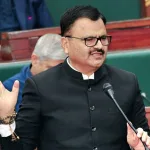UNMET PROMISES
Vocational education serves as a critical pathway, meticulously designed to equip individuals with the specialized skills and practical knowledge essential for immediate entry into various trades, crafts, and professions. It prioritizes hands-on training and real-world application, ensuring that graduates are not only theoretically informed but also demonstrably proficient in their chosen fields.
Vocational education was initiated in 2016 under a centrally sponsored scheme, aiming to impart skill-based training in different trades to students in high and higher secondary schools. This would enable them to stand on their own feet after passing 10th or 12th grade, which isn’t possible with traditional academic subjects like Urdu, History, or English.
In Jammu and Kashmir, vocational subjects were introduced in various High and Higher Secondary schools, and highly qualified, professional and technical vocational teachers were recruited through third-party agencies (VTPS) in 2016 with a starting salary of Rs 20,000. However, even in 2025, these teachers are still earning the same salary and regrettably, due to ill fortune, most Vocational Teachers (VTs) have also exceeded the age limit.
Over the past 9-10 years, vocational teachers have faced numerous hardships and continue to do so. Despite repeated appeals to higher authorities regarding the job policies, transfers and increments, the government hasn’t taken any concrete action. Most VTs work out of district, facing significant commuting challenges, and many are treated poorly at the school level, sometimes receiving less respect than a peon. Their entire salary often goes towards travel expenses.
One VT shared his gruelling daily commute from Tral to a far-flung village in Baramulla, involving walking, hitchhiking, and multiple modes of transportation. He begins his journey at 7 am and faces immense difficulty, which is a common experience for many VTs.
Due to the stagnant salary, many VTs struggle to make ends meet, often unable to afford basic necessities like milk for their children. They appeal to the government to address their plight, questioning the disparity in treatment despite their crucial role in imparting skill-based education to students. They request immediate attention and resolution to this longstanding issue.
Many vocational teachers are now experiencing mental health issues, including depression, due to the extreme difficulty of managing household expenses on their current salaries, especially with today’s high inflation. I implore the government to acknowledge the difficult circumstances faced by highly qualified professionals like ourselves. We have received substantial educational investments from our parents, yet we now face the difficult situation of potentially needing to ask them for financial support.
The irony is stark; while we, as vocational teachers, prepare students for self-reliance, our own financial prospects are dim. We desperately plead with the government to hear our cries before we are pushed to the edge. The thought of not being able to support our families, or even start our own, is a heavy burden to bear.
We implore the relevant authorities to establish a job policy that ensures and upholds the rights and interests of vocational teachers.
(Author is a Vocational Teacher and can be reached at: [email protected])








